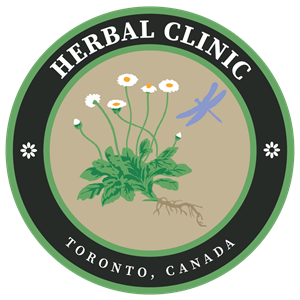Our digestive system is arguably the most important organ responsible for many key functions in the body. From producing inflammation/allergy responses to processing key neurotransmitters like serotonin, the digestive process, when unbalanced, can cause a myriad of health issues.
Luckily, there are a number of herbs that can both keep your digestive system functioning smoothly as well as help heal a gut that’s had the proverbial wrench thrown into it. There’s no question that dietary and lifestyle habits play a major role (e.g., sugar, wheat, dairy, and stress levels), but when the hardware is damaged, or when trying to prevent damage, there are a few helpful herbal go-tos you can count on.
Here are 15 medicinal herbs that have been organized into three categories: Bitters, Calmers, and Healers
Bitters
Bitters help stimulate digestion and are typically taken 5-30 minutes before a meal in tincture form. Keep the solution under the tongue for 30 seconds, which will stimulate saliva production. The digestive enzyme amylase is then released, needed for the breakdown of starches into sugars. Bitters also stimulate the secretion of bile from the gall bladder, helping to break down fats into fatty acids. Ultimately, they keep your digestive system on track where long-term use can help restore an underactive digestive system. Examples of bitters include:
Dandelion Root (Taraxacum officinale)
Artichoke (Cynara scolymus)
Barberry root (Berberis vulgaris)
Gentian (Gentiana lutea)
Andrographis (Andrographis paniculata)
Calmers
The formal name for these herbs is carminatives. They help prevent gas formation in the intestinal tract, which can be extremely uncomfortable when eating foods that don’t agree with our system. We’ve all experienced bloating and cramping after eating the wrong foods – the beauty of these herbs are that most of them can be incorporated into the cooking process or added to a warm tea during your meal. Examples of calming herbs include:
Fennel (Foeniculum vulgare)
Peppermint (Mentha piperita)
Cardamom (Elettaria cardomomum)
Caraway (Carum carvi)
Lemon Balm (Melissa officinalis)
Healers
These herbs often contain mucilage, similar in consistency to the mucous we produce, their thick and gooey consistency helps to coat the epithelial lining (skin) of our internal organs. In the same way that aloe vera helps soothe inflamed wounds topically on our skin, they also help soothe us on the inside. This helps move things along through our system and protects us against friction and inflammation along the way. Some examples of these are:
Slippery Elm Bark (Ulmus fulva)
Aloe Leaf (Aloe vera)
Marshmallow Root (Althaea officinalis)
Mullein Leaf (Verbascum sp.)
Licorice Root (Glycyrrhiza Glabra)
While most medicinal herbs have traditionally been perceived as weeds, as such, they grow plentifully and have many benefits they can provide us with. Many of the herbs mentioned above can easily be grown in both indoor and outdoor gardens and are very forgiving to even the most inexperienced gardener. With 75% of modern pharmaceuticals coming from derivatives of plant sources, it’s no wonder more and more of us are returning back to the original source to help us in out personal healing journeys.

